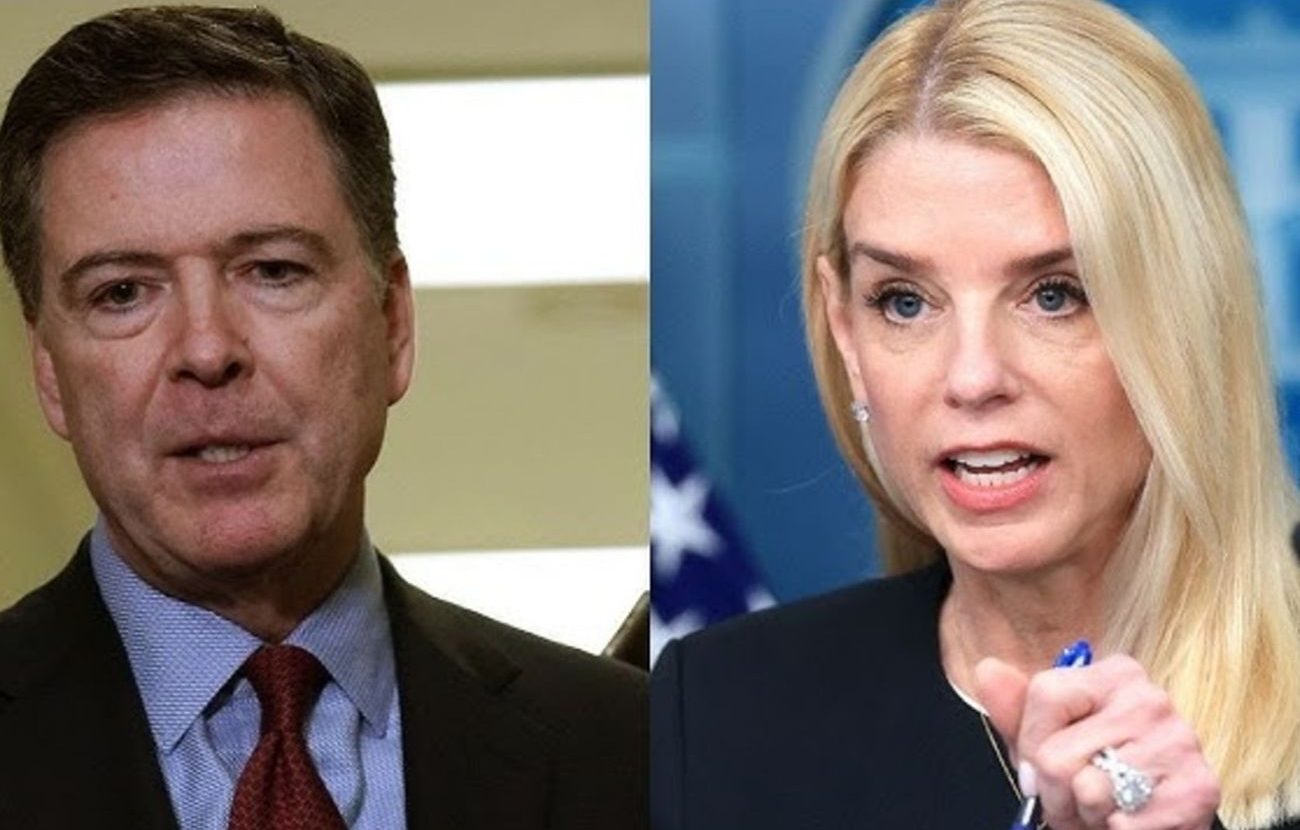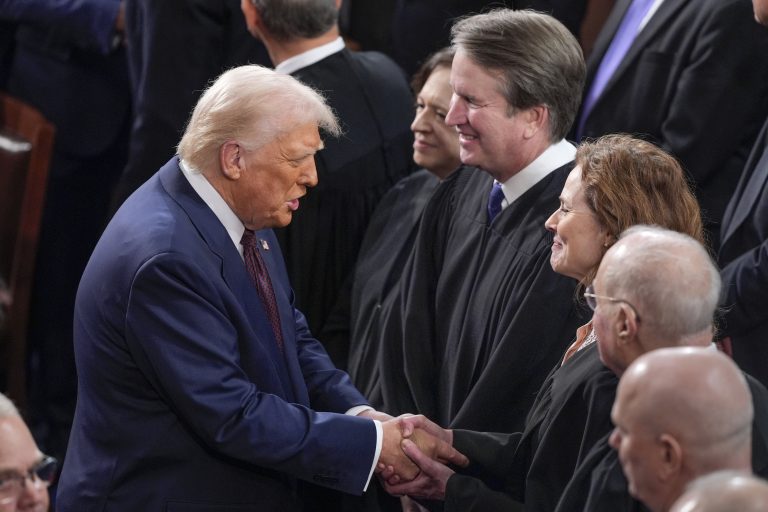Alexandria, VA — Former FBI Director James Comey has filed a legal challenge questioning the legitimacy of the appointment of a U.S. attorney by former President Donald Trump. The move adds a new dimension to the highly scrutinized legal battles involving Comey and underscores ongoing debates about presidential authority, judicial independence, and prosecutorial discretion.
Comey’s attorneys submitted a motion to dismiss the charges, arguing that the appointment of Lindsey Halligan as U.S. attorney for the Eastern District of Virginia may be legally flawed. The motion specifies that an “out-of-district judge” could preside over the matter, signaling the high-profile nature of the procedural challenge.
“James Comey, by counsel, will file his motion to dismiss challenging the lawfulness of the appointment of the United States Attorney for the Eastern District of Virginia,” the filing stated.
The challenge comes in the midst of a criminal case in which Comey has pleaded not guilty to federal charges, including allegedly making false statements and obstructing a congressional proceeding during his 2020 testimony before Congress.
Background of the Case
In 2017, President Trump dismissed Comey during the FBI’s investigation into potential links between his presidential campaign and Russia. The firing ignited national debate and became a cornerstone of subsequent investigations into the administration.
Halligan, a lawyer with close ties to Trump, was appointed last month following the resignation of former U.S. Attorney Erik Siebert. Since taking office, Halligan has indicted Comey, marking a rare instance of a former FBI director facing federal criminal charges.
The White House has publicly expressed confidence in Halligan’s appointment. A spokesperson told Axios:
“This is a frivolous and desperate attempt by Comey to distract from the facts of his case that even a grand jury recognized.”
The Judge: Michael Nachmanoff
U.S. District Judge Michael Nachmanoff, a Biden appointee, will oversee Comey’s criminal case and is expected to preside over the motion challenging Halligan’s appointment. Known for his composure and methodical approach to the law, Nachmanoff is a fourth-degree black belt in Shotokan Fudokan karate, a discipline that emphasizes focus and discipline under pressure.
Legal peers and former colleagues describe Nachmanoff as an even-tempered jurist who approaches cases with fairness and impartiality. He previously served as a magistrate judge in the same Alexandria courthouse and was among the first judicial nominees confirmed by the Biden administration, earning bipartisan Senate support.
“I would call him an apolitical judge,” said Kevin Carroll, a Virginia attorney. “The judge hasn’t brought politics into it at all. It’s just been straight legal discussion.”
Robert Jenkins, a white-collar defense attorney, added:
“When I learned about the case being assigned to him, I had a great sense that if this is just a politically motivated prosecution, he will discover the right way to deal with it … If there is some true merit to the allegations contained in the indictment, I think he will do likewise, because he is fair and committed to doing the right thing.”
Legal Context and Implications
Comey’s challenge highlights a larger debate over presidential appointments and political influence in the U.S. justice system. Critics of Halligan’s appointment have described it as part of a “political payback strategy” by the former president, raising questions about the independence of prosecutors who are close to a particular administration.
Legal experts note that the appointment of U.S. attorneys by presidents is a standard practice under federal law. However, in highly politicized cases, motions challenging the lawfulness of appointments are occasionally filed, particularly when the defense believes there may be conflicts of interest.
The indictment of Comey, returned by a grand jury in Washington, D.C., alleges that he made false statements to Congress and obstructed congressional proceedings during his 2020 testimony. The case is being closely monitored in Washington due to Comey’s profile as a former FBI director and his role in prior national security investigations.
The Broader Political and Judicial Environment
Observers say the case illustrates the complex intersection of law, politics, and public perception in contemporary Washington. While the criminal charges against Comey are being contested, the challenge to Halligan’s appointment injects additional scrutiny into the process, raising potential questions about prosecutorial impartiality and the separation of powers.
Halligan’s appointment followed the resignation of Erik Siebert, and critics contend that her close association with Trump may color perceptions of her impartiality. Supporters argue that Halligan is qualified for the role and that there is no evidence to suggest the appointment was unlawful.
Meanwhile, the judiciary’s role in balancing political pressures and ensuring fair trials is under close examination. Analysts note that Judge Nachmanoff’s track record of impartiality and disciplined courtroom management will be critical in maintaining public confidence as proceedings unfold.
Next Steps
Comey’s motion to dismiss is expected to be heard by the court in the coming weeks. If the judge grants the motion, it could have implications for the validity of ongoing prosecutions and the use of politically appointed prosecutors in other high-profile cases.
Regardless of the motion’s outcome, the case has drawn national attention due to Comey’s former role as FBI director, the political context of his firing, and the ongoing scrutiny of Trump-era appointments.
“This is one of the most closely watched trials of President Trump’s second term,” the Axios report noted, emphasizing the national interest in the legal proceedings.
Observers anticipate that public interest will remain high, and legal analysts expect the case to be a reference point for discussions about the limits of political influence in federal prosecutions.

James Jenkins is a celebrated Pulitzer Prize-winning author whose work has reshaped the way readers think about social justice and human rights in America. Raised in Atlanta, Georgia, James grew up in a community that instilled in him both resilience and a strong sense of responsibility toward others. After studying political science and creative writing at Howard University, he worked as a journalist covering civil rights issues before dedicating himself fully to fiction. His novels are known for their sharp, empathetic portraits of marginalized communities and for weaving personal stories with broader political realities. Jenkins’s breakout novel, Shadows of Freedom, won national acclaim for its unflinching look at systemic inequality, while his more recent works explore themes of identity, resilience, and the fight for dignity in the face of oppression. Beyond his novels, James is an active public speaker, lecturing at universities and participating in nonprofit initiatives that support literacy and community empowerment. He believes that storytelling is a way to preserve history and inspire change. When not writing, James enjoys jazz music, mentoring young writers, and traveling with his family to explore cultures and stories around the world.









